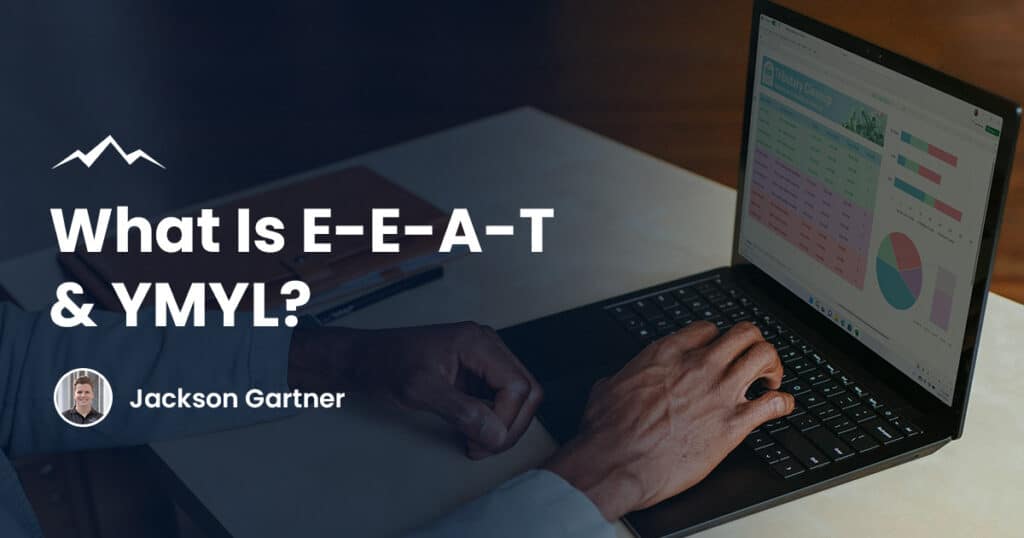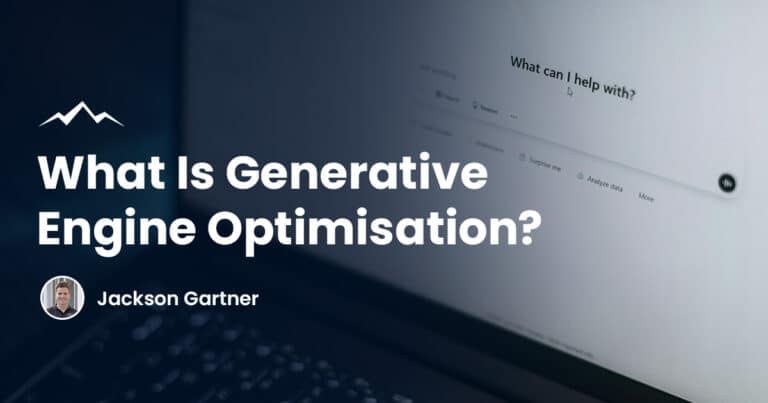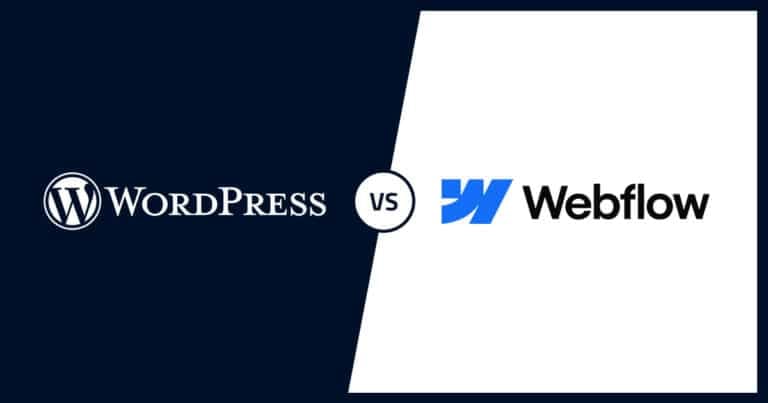Imagine you’re looking for health advice online and you find conflicting information. Which source would you trust? The answer lies in the principles of E-E-A-T and YMYL, two critical concepts in SEO.
E-E-A-T stands for Experience, Expertise, Authoritativeness and Trustworthiness while YMYL refers to Your Money or Your Life.
These concepts are essential for ensuring the credibility and reliability of content, especially when it impacts someone’s well-being or financial stability.
In this article, we’ll cover what E-E-A-T and YMYL mean, why they matter and how you can implement them to enhance your website’s SEO performance and trustworthiness.
Understanding E-E-A-T
Google’s E-E-A-T guidelines play a crucial role in determining the quality and ranking of web content.
These guidelines, detailed in Google’s Search Quality Evaluator Guidelines, are essential for content creators aiming to improve their website’s SEO.
By adhering to these principles, you can enhance your site’s credibility and visibility in search results. Let’s break down each component of E-E-A-T and understand its significance.
Experience
Joining E-A-T in late 2022 to create E-E-A-T, experience is that latest addition to Google’s search rater guidelines.
The importance of firsthand experience in content creation cannot be overstated. Google values content that reflects real-life experiences and practical knowledge.
For instance, a travel blog written by someone who has visited the destinations is more valuable than one compiled from second-hand information.
Similarly, product reviews based on actual usage are more trustworthy than those written without personal experience.
By showcasing genuine experiences, your content becomes more relatable and credible to your audience.
Expertise
This component underscores the significance of subject matter expertise. Content created by individuals with proven knowledge and skills in a specific area is prioritised.
For example, medical advice should ideally come from healthcare professionals. Google looks for indicators of expertise, such as author qualifications, professional backgrounds and relevant experience.
Providing detailed author bios and citing sources can help establish your expertise.
Expertise is not limited to formal education or professional titles however, it also includes accumulated knowledge and skills.
For instance, a seasoned home cook sharing recipes with detailed instructions and tips demonstrates culinary expertise, making the content valuable and trustworthy.
Google’s guidelines suggest that different topics require varying levels of expertise to be considered trustworthy and this is especially important in YMYL topics which we’ll get to later in this article.

Authoritativeness
Building authority involves earning a reputation for being a go-to source in your field. This can be achieved through endorsements, citations from other reputable sites and consistent high-quality content.
Authoritativeness is often reflected in how widely your content is referenced or shared. Engaging with the community, guest posting on reputable platforms and earning positive reviews can boost your authority.
Authority is context-dependent and varies across different topics. For example, a local business’s social media page can be authoritative for local events and offers, while a government website is authoritative for official procedures and information.
Google’s guidelines highlight that a website or content creator’s authority should be evaluated based on their recognition and credibility in their specific field.
Trustworthiness
Establishing trust with your audience is crucial. Transparency, accuracy and honesty are key.
Displaying author qualifications, including clear contact information and providing a secure website are some of the best ways to enhance trustworthiness.
Google favours sites that are transparent about who is behind the content and how information is verified. Providing clear website policies on privacy, returns and customer service also contributes to building trust.
Trust is the foundation of E-E-A-T and is considered the most critical aspect. Even if content demonstrates high levels of experience, expertise and authoritativeness, it can still be deemed untrustworthy if it appears dishonest or unsafe.

Understanding YMYL
YMYL stands for “Your Money or Your Life” and refers to content that can significantly impact a reader’s well-being, financial stability or safety.
Google takes YMYL content very seriously, given its potential to influence crucial life decisions. This includes topics like health, finance, legal advice and safety information.
The importance of accuracy and trustworthiness in these areas cannot be overstated, as misinformation can lead to serious consequences for users.
Types of YMYL Content
YMYL content spans a broad range of topics that directly affect people’s lives. Some examples include:
- Health and Medical Information: Advice on treatments, medications and general health practices. Accuracy is paramount to prevent harm.
- Financial Advice: Information on investments, loans and managing finances. Trustworthy advice is crucial to avoid financial losses.
- Legal Information: Guidance on legal rights, processes and regulations. Reliable content helps users make informed legal decisions.
- Safety Information: Tips on personal safety, home security and emergency procedures. Correct and timely information can save lives.
The table below is a summarised version taken from Google’s Search Quality Evaluator Guidelines. This table provides clear examples of different topics being categorised by Google as YMYL:
| Type of Topic | Clear YMYL Topic | May be YMYL Topic | Unlikely YMYL Topic |
|---|---|---|---|
| Information Could significant harm result from inaccurate information? | Evacuation routes for a tsunami Explanation: Inaccurate information on evacuation routes could cause significant harm. | Weather forecast Explanation: Slightly inaccurate information about the weather will not cause harm. | Music award winners Explanation: This topic is unlikely to cause harm. |
| Advice about an activity Could significant harm result from poor advice? | When to go to the emergency room Explanation: Bad advice on when to go to the emergency room could cause significant harm. | How often to replace a toothbrush Explanation: This is a casual health topic people commonly discuss with friends. | How frequently to wash jeans Explanation: This topic is unlikely to cause harm. |
| A personal opinion What impact could this opinion have on other people and society? | Personal opinion about why a racial group is inferior Explanation: Pages on this topic have been used to justify or incite violence against groups of people. | Personal opinion about why an exercise is inferior Explanation: While there may be a health concern with risky exercises, most discussions involve personal preference. | Personal opinion about why a rock band is inferior Explanation: This topic is unlikely to cause harm. |
| News about current events Could this topic significantly impact people and society? | News about ongoing violence Explanation: People need accurate information to stay safe. | News about a car accident Explanation: There is likely little risk from small inaccuracies in reporting about an incident. | News about a local high school basketball game Explanation: This topic is unlikely to cause harm. |
| Sharing on social media Could the social media post cause significant harm? | A tide pod challenge post Explanation: This harmful social media challenge was responsible for deaths. | A hot sauce challenge Explanation: It is unlikely that sharing this challenge would cause significant harm. | A music video Explanation: This type of content generally has little risk of harm. |
| Online commerce and product reviews Consider the product. Could the product cause significant harm? | Purchasing prescription drugs Explanation: Prescription drugs have the potential to cause harm and require licensed pharmacies. | Review of a type of car Explanation: While cars are big purchases, many people ask friends and family about cars. | Purchasing pencils Explanation: Pencils and other everyday items are unlikely to cause harm. |
Importance in SEO
Google scrutinises YMYL content more rigorously than other types of content. The search engine prioritises pages that demonstrate high levels of E-E-A-T.
For instance, a medical website authored by certified doctors with up-to-date and well-referenced information will rank higher than a blog with unverified health tips.
To ensure the accuracy and reliability of YMYL content, Google recommends the following practices:
- Fact-Checking and Updating: Regularly review and update content to reflect the latest information and developments.
- Collaborating with Experts: Work with professionals who have the necessary expertise to create and verify content.
- Providing Detailed Author Bios: Highlight the qualifications and credentials of content creators to establish authority and trust.
By adhering to these guidelines, websites can improve their SEO performance while ensuring that their YMYL content is trustworthy and valuable to users.

How to Improve E-E-A-T on Your Website
Improving your website’s E-E-A-T involves a multifaceted approach focused on creating trustworthy, authoritative and expert content.
By enhancing these aspects, you can significantly boost your website’s credibility and search engine rankings. Here are some practical strategies to elevate your website’s E-E-A-T:
Create High-Quality Content
High-quality content is the cornerstone of E-E-A-T. To achieve this, ensure your content is well-researched, accurate and valuable to your audience.
Write website copy with clarity and purpose, focusing on providing actionable insights and information. Use credible sources and cite them appropriately to enhance the trustworthiness of your content.
For example, linking to authoritative sites such as government health departments or financial regulatory bodies can lend credibility to your work.
Additionally, make your content engaging and user-friendly. Break down complex topics into digestible pieces, use visuals to support your text and ensure your website is easy to navigate.
Regularly update your content to reflect the latest information and trends in your industry.
Building Authoritative Backlinks
Backlinks from reputable websites are a strong signal of authority and trustworthiness.
Engage in strategies to earn high-quality backlinks, such as guest posting on well-regarded sites, collaborating with industry influencers and participating in relevant online communities.
You can also reach out to authoritative websites to suggest your content as a resource, especially if it complements their topics.
Social proof, such as endorsements and testimonials from experts, can further bolster your authority. Share positive reviews and case studies to demonstrate your expertise and success.
Enhancing Website Security and Transparency
Security and transparency are fundamental to building trust.
Implement HTTPS to ensure a secure browsing experience for your users. A secure site not only protects user data but also signals to Google that your site is trustworthy.
Transparency involves being open about who is behind your content and how it is created. Display detailed author bios, including their qualifications and experience to establish expertise.
Provide clear contact information and make it easy for users to get in touch with you. Additionally, having a comprehensive “About Us” page that outlines your mission, values and the team behind your website can enhance trust.
Regularly Updating Content
Content relevancy and accuracy are critical, especially for YMYL topics.
Regularly review and update your content to ensure it reflects the latest information and industry standards. Outdated information can harm your credibility and trustworthiness.
Monitor industry trends and updates to keep your content fresh. Incorporate new findings, case studies and examples to maintain the relevance and value of your content.
By focusing on these strategies, you can significantly improve your website’s E-E-A-T, thereby enhancing its credibility, trustworthiness and search engine performance.

How to Handle YMYL Content
Handling “Your Money or Your Life” content requires a stringent focus on accuracy, expertise and trustworthiness.
Because this type of content can significantly impact a person’s health, financial stability or overall well-being, it is vital to adhere to the highest standards of quality and reliability.
Essentially, this means applying the E-E-A-T recommendations mentioned above even more rigorously.
Ensuring Accuracy and Reliability
Misinformation can lead to serious consequences, so it is crucial to fact-check all information thoroughly.
Use up-to-date, credible sources such as academic journals, government publications and expert opinions. Regularly update your content to reflect new findings and changes in the field.
Collaborating with professionals in the relevant field can further enhance the reliability of your content. For instance, a financial blog can benefit from insights provided by certified financial planners or economists.
Demonstrating Author Expertise
Provide detailed author bios that include their qualifications, professional experience and any relevant certifications. This transparency helps users understand the credibility of the information provided.
For example, if your site offers legal advice, include information about the authors’ legal background, their areas of specialisation and their years of practice.
This level of detail reassures readers that they are getting information from a knowledgeable and reliable source.
Regular Updates and Fact-Checking
Given the dynamic nature of many YMYL topics, it is essential to keep your content up-to-date. Regularly review and revise your content to ensure it remains accurate and relevant.
Implement a systematic process for updating content, including setting regular review intervals and assigning responsibility to specific team members.
Fact-checking should be an ongoing process. Before publishing any content, verify the information against trusted sources. Use multiple references to cross-check facts and ensure there are no discrepancies.
Elevate Your Website
Understanding and implementing E-E-A-T and YMYL principles can significantly enhance your website’s credibility and search engine rankings.
By focusing on high-quality content, authoritative backlinks and transparency, you build trust with your audience and search engines alike.
For YMYL content, extra diligence is needed to ensure accuracy and reliability. Adhering to these standards will not only improve your SEO but also provide valuable, trustworthy information to your readers.
If you’d like our Brisbane SEO experts or local web design team to help with a thorough review of your website and its content, don’t hesitate to reach out.
Frequently Asked Questions
What does E-E-A-T stand for in SEO?
E-E-A-T stands for Experience, Expertise, Authoritativeness and Trustworthiness. These principles guide the quality assessment of web content by search engines like Google.
Why is YMYL content scrutinised by Google?
YMYL (Your Money or Your Life) content is scrutinised because it can significantly impact a person’s health, financial stability or safety. Misinformation in these areas can lead to serious consequences.
How can I improve E-E-A-T on my website?
You can improve E-E-A-T by creating high-quality, well-researched content, earning authoritative backlinks, enhancing website security and being transparent about your authors and processes.
What types of content fall under YMYL?
YMYL content includes topics that affect health, financial stability, safety and legal matters. Examples include medical advice, financial guidance, legal information and safety tips.
How do backlinks impact E-E-A-T?
Backlinks from reputable websites signal authority and trustworthiness. They show that other credible sites recognise the value of your content, which can improve your E-E-A-T rating.
What role does author expertise play in YMYL content?
Author expertise is crucial for YMYL content to ensure accuracy and reliability. Highlighting the qualifications and professional background of content creators can establish credibility and trust.
To your success,
Jackson




